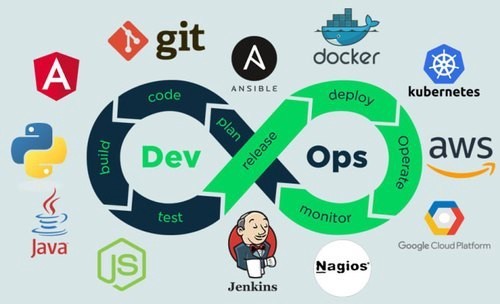 𝗗𝗮𝘆 𝟵𝟴 - 𝗞𝗲𝘆 𝗗𝗲𝘃𝗢𝗽𝘀 𝗣𝗿𝗶𝗻𝗰𝗶𝗽𝗹𝗲𝘀
𝗗𝗮𝘆 𝟵𝟴 - 𝗞𝗲𝘆 𝗗𝗲𝘃𝗢𝗽𝘀 𝗣𝗿𝗶𝗻𝗰𝗶𝗽𝗹𝗲𝘀 
The key principles of DevOps can be summarized into 7 main points.
1. Communication and Collaboration:
DevOps emphasizes strong collaboration between development (Dev) and operations (Ops) teams to break down silos and streamline the entire development-to-production process.
2. Automation:
Automating repetitive tasks such as code integration, testing, deployment, and infrastructure management is a core aspect of DevOps. This leads to faster and more consistent processes.
3. Continuous Integration (CI) and Continuous Delivery (CD):
· CI involves frequently merging code changes into a shared repository, followed by automated testing to ensure the integrity of the application.
· CD extends CI by automating the deployment process, ensuring that applications can be released to production quickly and reliably.
4. Infrastructure as Code (IaC):
IaC allows teams to manage and provision infrastructure through code and automation, treating infrastructure configurations the same way as application code (versioned and reproducible).
5. Monitoring and Logging:
Continuous monitoring of applications and infrastructure is essential to identify performance issues, security vulnerabilities, and operational inefficiencies. It also allows rapid detection of problems in production.
6. Microservices Architecture:
DevOps encourages breaking down applications into smaller, loosely coupled services (microservices), which can be developed, deployed, and scaled independently.
7. Agile Methodology:
DevOps often incorporates Agile practices, emphasizing iterative development, customer feedback, and adapting to changes quickly.
